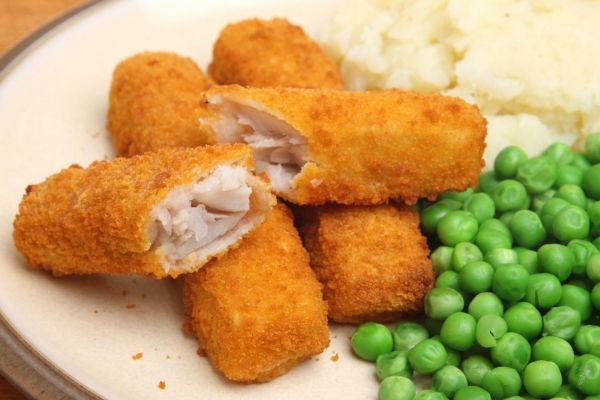Fish sticks may be a tasty option for dinner, but are they good for the planet?
A new study of the climate impacts of seafood products reveals that the processing of Alaskan pollock into fish sticks, imitation crab, and fish fillets generates significant greenhouse gas emissions.
Post-catch processing generates nearly twice the emissions produced by fishing itself, which is typically where the analysis of the climate impact of seafood ends, according to the findings by researchers at the University of California, Santa Cruz.
"The food system is a significant source of global greenhouse gas emissions, and Alaskan pollock is one of the biggest fisheries in the world," said Brandi McKuin, a postdoctoral researcher in environmental studies at UCSC. "These findings highlight the need to take a comprehensive approach to analyzing the climate impacts of the food sector."
Read more at University of California - Santa Cruz
Image: Processing Alaskan pollock into fish sticks, imitation crab, and fish fillets generates significant greenhouse gas emissions, a new study reveals. (Credit: UC Santa Cruz)


